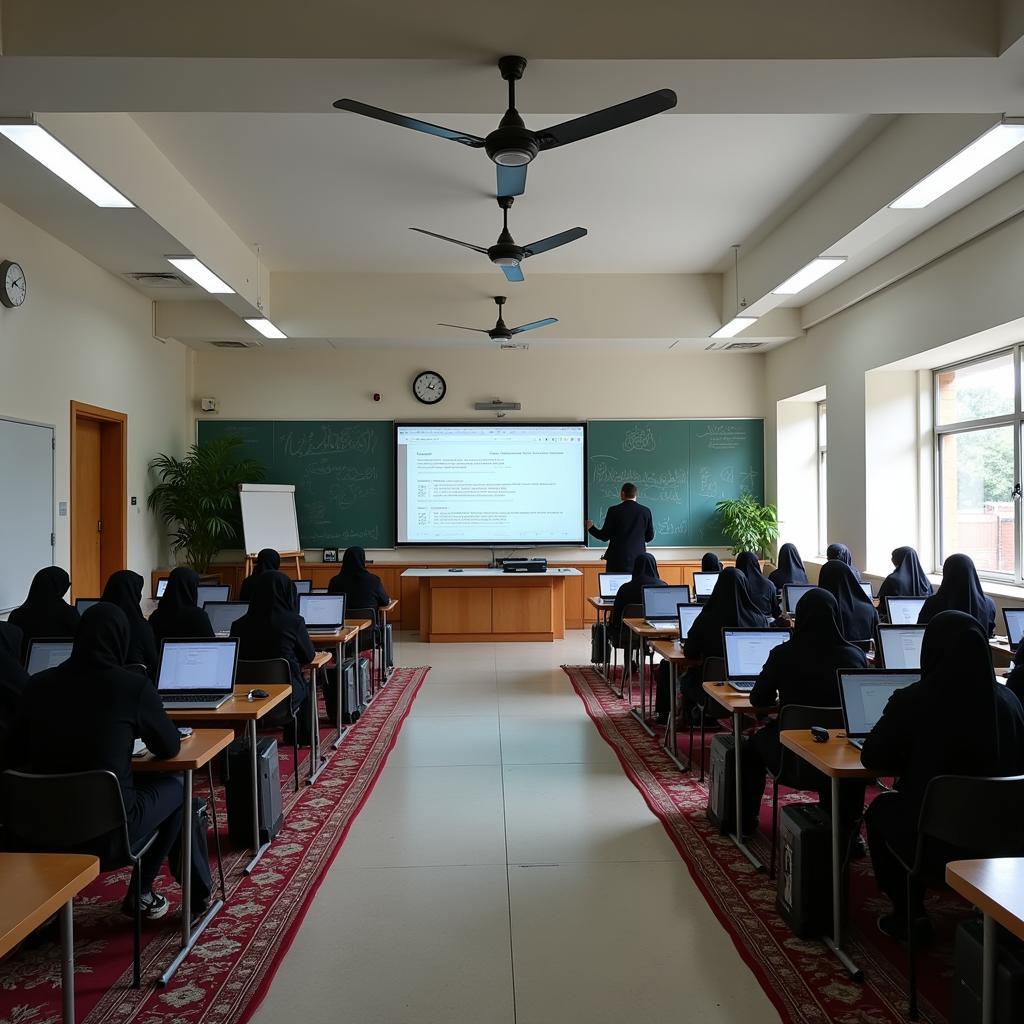Tanzeem Ul Madaris Pakistan is a significant part of the country’s educational landscape. This article explores the complexities of this system, examining its history, curriculum, influence, and the ongoing debates surrounding its role in modern Pakistan. We’ll delve into the challenges and opportunities it presents, offering a balanced perspective on this often-misunderstood institution.
What is Tanzeem Ul Madaris Pakistan?
Tanzeem ul Madaris Pakistan refers to the organized system of Islamic seminaries (madaris) in Pakistan. These seminaries provide religious education, focusing primarily on the study of the Quran, Hadith, and Islamic jurisprudence. They play a vital role in the lives of many Pakistanis, particularly in rural areas where access to formal education may be limited.
The History and Evolution of Tanzeem Ul Madaris
The history of madaris in the Indian subcontinent stretches back centuries. However, the modern system of Tanzeem ul Madaris in Pakistan took shape after the partition of India in 1947. Initially, these madaris operated independently, with varying curricula and teaching methodologies. Over time, different boards or “tanzems” emerged to standardize and regulate these institutions.
The Curriculum and Structure of Tanzeem Ul Madaris
The curriculum of Tanzeem ul Madaris typically centers around Islamic studies. While some madaris incorporate modern subjects like mathematics and science, the primary focus remains on religious education. Students progress through different levels of study, culminating in advanced degrees equivalent to a Master’s or even a Doctorate in Islamic studies.
The Influence and Reach of Tanzeem Ul Madaris
Tanzeem ul Madaris has a significant influence on Pakistani society, particularly within conservative communities. These seminaries often serve as community centers, providing not only education but also social services and spiritual guidance. Their reach extends to various parts of the country, catering to students from diverse socioeconomic backgrounds.
Challenges and Criticisms Faced by Tanzeem Ul Madaris
Tanzeem ul Madaris has faced criticism over the years, particularly regarding concerns about curriculum relevance, lack of modernization, and allegations of promoting extremism. Addressing these challenges is crucial for the system to evolve and contribute positively to Pakistan’s development.
Reform and Modernization Efforts within Tanzeem Ul Madaris
Efforts are underway to reform and modernize Tanzeem ul Madaris. Some madaris are incorporating modern subjects into their curriculum, while others are exploring ways to integrate their graduates into mainstream society. These initiatives aim to bridge the gap between religious and secular education.
The Future of Tanzeem Ul Madaris Pakistan
The future of Tanzeem ul Madaris hinges on its ability to adapt to the changing needs of Pakistani society. By embracing modernization, promoting critical thinking, and fostering tolerance, these institutions can play a constructive role in shaping the country’s future.
 Future Prospects of Tanzeem ul Madaris in Pakistan
Future Prospects of Tanzeem ul Madaris in Pakistan
Conclusion: Tanzeem ul Madaris Pakistan at a Crossroads
Tanzeem ul Madaris Pakistan stands at a critical juncture. Balancing its traditional role with the demands of a modernizing world is essential for its long-term relevance and positive contribution to Pakistan’s future. It is crucial to foster dialogue and collaboration to ensure that these institutions can empower their students and contribute to a more inclusive and prosperous society.
FAQ
- What is the primary focus of Tanzeem ul Madaris? (Islamic religious education)
- How has Tanzeem ul Madaris evolved over time? (From independent institutions to a more organized system with different boards)
- What are some criticisms of the system? (Curriculum relevance, lack of modernization, allegations of extremism)
- What reform efforts are being undertaken? (Incorporating modern subjects, integrating graduates into mainstream society)
- What is the significance of Tanzeem ul Madaris in Pakistan? (Provides religious education, particularly in rural areas, and has a significant social influence)
- What are the different boards or tanzeems within the system? (This varies by region and sect, further research is needed for specifics)
- What is the future outlook for Tanzeem ul Madaris? (Dependent on its ability to adapt and modernize)
Need assistance? Contact us: Phone: +923337849799, Email: news.pakit@gmail.com or visit us at Dera Ghazi Khan Rd, Rakhni, Barkhan, Balochistan, Pakistan. We have a 24/7 customer service team.